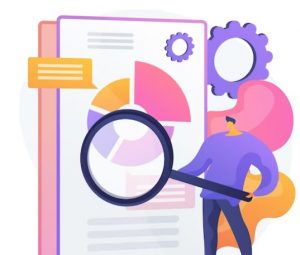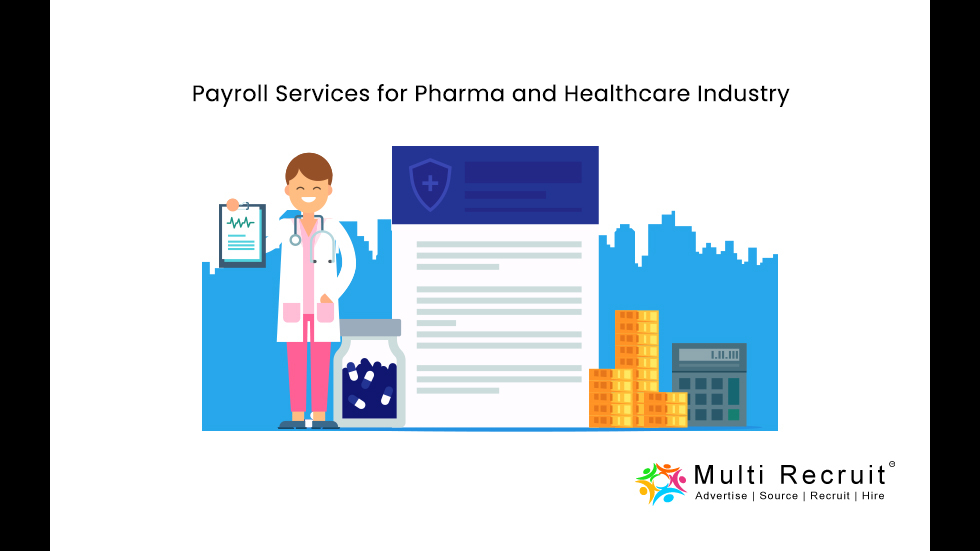/India’s healthcare industry is among the fastest growing yet most challenging. As a result of the problematic nature of healthcare’s work environment, skilled and knowledgeable employees are crucial to delivering quality services on time. To meet the complex needs of the healthcare industry, Many payroll companies have developed hospital-specific payroll services. To manage employees efficiently, it is imperative to have instant access to all their data, including certifications, training, and payroll information. Payroll Management service plays a key role in the healthcare sector.
Healthcare Services Trends
The pandemic has affected almost every industry in the world, but healthcare remains at the forefront of the crisis.
The use of remote care solutions has become increasingly important for healthcare companies and facilities to provide safer patient care. Employees are also increasingly adopting remote work models as a means of survival.
Trend #1. Healthcare Remote Team Management
Non-medical staff in Coronavirus-infected healthcare facilities should be minimized during the most challenging days of the outbreak. The work-from-home mode was switched on for the auxiliary staff. The majority of these individuals were medical HR managers, bookkeepers, payroll specialists, and other payroll-related administrative specialists.
Trend #2. The use of AI and payroll automation in healthcare is on the rise
An employee’s payroll duties include a variety of routine tasks, such as filling out different employee forms, calculating wages, paying benefits and taxes, and paying insurance.
Due to the large number of variables involved, these factors are highly complicated. For example, hours worked vary by a specialist, contract terms vary, and hourly rates differ. There is also a higher risk of costly errors due to this mayhem of divergent factors.
Trend #3. Mobility Boost
As healthcare organizations track and report work performance, a number of associated technologies (including medical IoT, and 4G/5G networks) are enabling changes.
As telehealth and other innovative health-tech trends become more prevalent, more sophisticated time-tracking solutions and applications will be available. Time management and more efficient approaches to their duties can be taught to nurses and other medical professionals.
Payroll Services for Pharma and Healthcare Industry
As a result of the unique nature of the work and compliance requirements of the pharmaceutical and healthcare industries, payroll services are subject to several important considerations. The following points should be kept in mind:
 1. Compliance:
1. Compliance:
Labor laws, employee benefits, and regulations regarding healthcare are all strict in the pharmaceutical and healthcare industries. Payroll service providers should be knowledgeable about these regulations, as well as capable of handling tax withholdings, wage and hour laws, and healthcare contributions.
![]() 2. Time and Attendance Tracking:
2. Time and Attendance Tracking:
Shift work, as well as varying schedules, are common in the pharma and healthcare industry. To accurately calculate pay based on hours worked, overtime, and shift differentials, choose a payroll service that offers robust time and attendance tracking capabilities.
 3. Employee Classification:
3. Employee Classification:
Workers in this industry may be employed full-time, part-time, temporary, or contract. Different employee classifications must be handled by the payroll service and wages and benefits calculated appropriately.
 4. Benefits Administration:
4. Benefits Administration:
Healthcare and pharmaceutical companies, including health insurance, retirement plans, and flexible spending accounts offer a variety of employee benefits. Benefit deductions, contributions, and payroll reporting should all be accurately managed by the payroll service.
 5. Payroll Tax Management:
5. Payroll Tax Management:
The nature of healthcare and pharmaceutical work can complicate payroll taxes, and healthcare companies may be subject to additional tax obligations. Payroll service providers should have the ability to calculate payroll taxes, withhold, and report accurately, taking into account any industry-specific requirements.
 6. Integration with HR Systems:
6. Integration with HR Systems:
You may benefit from integrating payroll with HR systems like time and attendance, employee benefits, and employee self-service portals to streamline processes and prevent duplicate data entry.
 7. Data Security and Confidentiality:
7. Data Security and Confidentiality:
Data security and confidentiality should be a top priority in the healthcare industry due to the sensitive nature of patient and employee information. Data protection regulations should be followed by the payroll service provider, as well as encryption and access controls.

8. Scalability and Customization:
Seasonal demands or project-based work often affect the size of the pharmaceutical and healthcare workforce. Your payroll service needs to be flexible and customizable so that it can accommodate changing needs.
 9. Reporting and Analytics:
9. Reporting and Analytics:
Payroll services should offer comprehensive analytics and reporting capabilities. You can then use this information to make better decisions and plan better by gaining insights into labor costs, employee productivity, and compliance metrics.
 10. Customer Support:
10. Customer Support:
Customer service is an essential part of payroll, which is why it is very important to have responsive customer support. Choose a payroll provider that can address your concerns in a timely manner and provides reliable support channels. When making a selection, consider industry-specific needs, compare features, and evaluate different payroll service providers thoroughly.
Conclusion
As a result of the unique challenges and compliance requirements in this field, payroll services for the pharma and healthcare industries require careful consideration. Employers can ensure accurate and compliant payroll management by partnering with payroll service providers who understand the intricacies of the industry. To know more contact Multi Recruit.

